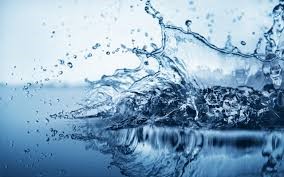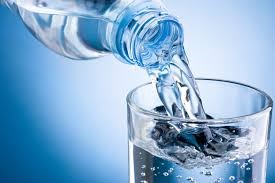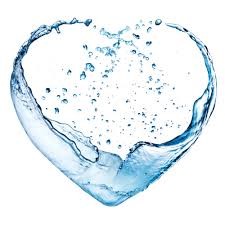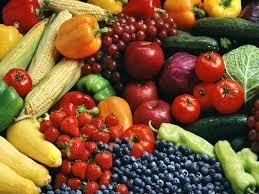We are made up of water – replenish your self
Your body needs water to function properly. Not only does water help you stay hydrated, it also helps regulate body temperature and is essential to the function of cells, tissues and organs.
Therefore, it is just as important to stay hydrated in the Winter as it is in the Summer. This may seem like an obvious statement, but it tends to be more difficult to achieve the proper level of hydration when the temperatures are colder, considering the likelihood of dehydration is actually accelerated when you train in cold weather and/or at higher altitudes. In these conditions, the air you breathe is drier, and your lungs have to work harder to humidify that air and warm it up. The harder your body works, the more you need to drink.
Use the tips below to stay hydrated this winter: (Reference: http://www.active.com/nutrition)
Wear layers: Sweat can reduce your body temperature and force your heart to work harder to maintain blood flow and body temperature. Wear layers of clothing that will absorb perspiration.
Replace what you lose: Water exits the body through exhalation, perspiration and urination. If your urine is pale and plentiful, you’re well-hydrated. If it’s dark and scant in volume, you need to drink more fluids.
Match your drink to the duration of your activity: If you’re exercising for up to one hour, you can rehydrate with water alone. However, after an hour, you will need to add electrolytes and carbohydrates. If you’re performing a sport activity at higher altitudes, increase your fluid requirements.
 Hydrate with room-temperature beverages: Cold liquids are absorbed quicker, while warmer or room temperature drinks are better at keeping your internal temperature optimal. Choose a warmer beverage when you’re exercising in cold temperatures.
Hydrate with room-temperature beverages: Cold liquids are absorbed quicker, while warmer or room temperature drinks are better at keeping your internal temperature optimal. Choose a warmer beverage when you’re exercising in cold temperatures.
Proper hydration is just as vital to your athletic performance as it is to your health. To perform your best, it is important drink enough before, during, and after your workouts.
Pre-Workout Hydration
Before a long run, a race, or a training workout, drink plenty of fluids. The day before an event, drink extra water, 100% juice and/or other nutrient-rich fluids such as non-fat or one-percent milk. Monitor the color of your urine. The goal is pale yellow, not clear.
The morning of the event, drink two 8 oz. cups of fluid two hours beforehand. This gives your kidneys enough time to process the liquids, giving you sufficient time to empty your bladder before the start of your event.
Thirty minutes prior to the beginning of the athletic event, drink another 5 to 10 oz. of water or sports drink. (One oz. of fluid equals about a medium mouthful of water.)
During Workout Hydration
Every athlete has unique hydration needs. By weighing yourself before and after exercise, you can estimate the volume of fluid your body requires to remain hydrated during exercise.
For each pound lost during activity, drink an additional 16 oz. of fluid. For example, if you drank 8 oz. while exercising for 60 minutes and lost one pound, your goal is to drink an additional 16 oz. during your next workout. So, you would need to drink a total of 24 oz. to ensure proper hydration. This would equate to 6 oz. of fluid every 15 minutes.
Post-Workout Hydration
To help you determine the amount of fluid you lose during exercise, you can weigh yourself before and after exercise. For each pound lost during activity, drink 24 oz. of fluid. If your body weight increased, you have overhydrated and you should drink less fluid in future exercise sessions.
After a practice or competition, drink to quench your thirst and then drink some more. Because the thirst mechanism is an inaccurate indicator of dehydration, you’ll have to monitor your urine to determine whether or not you’ve had enough.
(Reference: http://www.absopure.com)
Drinking water can even give your immune system a boost and prevent you from getting sick during peak cold and flu season. It can alsoincrease your metabolism and help you feel full, longer. This could help curb your appetite and enable you to maintain healthy eating habits during holiday seasons.
The amount of water you should drink on a daily basis depends on your weight and overall level of physical activity. Aim to drink at least half of your body weight in ounces of water each day, and adjust based on your level of physical activity.
Hot beverages count, too. Try warming up with a nice cup of hot green tea, or even hot water with lemon. These two hot beverages will keep you cozy on a chilly winter’s day, but also help you keep on pace to drink your eight glasses of water.
Eat your water? (Reference: http://www.health.com)
 Several fruits and vegetables have a high-water content that can help you reach your daily intake goals. Produce options with high water content.
Several fruits and vegetables have a high-water content that can help you reach your daily intake goals. Produce options with high water content.
Cucumbers: Topping the list at 96.7% water content, cucumbers contain the highest water content of any food. Eat it with your favorite dressing, pair it with a salad or even add it your water to make every meal extra refreshing.
Pears: Sweet and juicy, pears are also high in water content and soluble fiber, which can promote healthy weight loss by helping you feel fuller for longer.
Celery: Next to drinking water, eating celery is the one of the easiest ways to reach the recommended daily water intake. Made of approximately 95% water, celery is high in fiber and vitamins A, C and K. At only six calories per stalk, you can feel good about pairing it with peanut butter for a healthy snack.
Strawberries: Most berries contain hydrating benefits. However, while raspberries and blueberries are approximately 85% water, strawberries contain more than 90% water. They are perfect for adding to a cup of Greek yogurt or breakfast smoothie.
Baby carrots: Carrots are a great snack for curbing your appetite and can also aid you in reaching your recommended daily water intake.
Watermelon: Made of 91% water, this juicy red fruit is rich in vitamins A and C, as well as lycopene, an antioxidant known for its cancer fighting powers.
Mixed greens & spinach: Spinach isn’t called a superfood for just any reason. Containing more than 90% water, spinach also contains important vitamins and antioxidants that can defend your body from free radicals. Plus, when you add the hydrating vegetables mentioned above to your salad, you could consume a decent portion of your daily water intake in one meal.
Grapefruit: At about 90% water, grapefruit is well known for its health benefits. In fact, according to researchers in California, eating grapefruit can help lower insulin levels and control appetite, leading to healthy weight loss. Eat it plain or squeeze some in your water to enjoy the hydration properties of this pink fruit.
Tomatoes: Next to celery, tomatoes are one of the most hydrating foods. Made of 94.5% water, tomatoes contain the cancer-fighting antioxidant lycopene and can be used to supplement a variety of recipes.
Don’t drink the wrong things!
When you’re trying to get enough water, sometimes it’s just as important to know what not to drink. Both caffeine and alcohol can make your body even more dehydrated. Limiting your intake of soda, coffee and alcoholic beverages can help  keep that needed hydration in your system where it belongs.
keep that needed hydration in your system where it belongs.
Don’t forget to break out the air humidifiers as well. Adding moisture to the dry winter air can help keep you hydrated while preventing scratchy throats and dry skin.
Our Personal Trainers here at moreFIT have plenty of expertise to assist with you a nutrition plan that will include keeping you hydrated.
